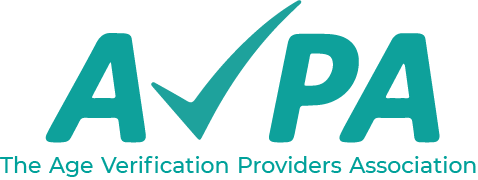PRESS RELEASE
The Age Verification Providers Association welcomes ground-breaking legislation to make the internet a safer place for children.
Leading UK SafetyTech companies welcomed today’s publication of a revised draft of the Online Safety Bill, which now begins its passage through Parliament.”
The Association hailed the Bill, describing it as “ground-breaking and world-leading.“
Any legislation which requires online services to provide additional protection for children first requires those websites to know which of their users is under 18. Alongside existing data protection laws which particularly affect popular social media platforms, and recent regulations relating to video-sharing platforms, the Online Safety Bill is a tipping point: from now on, to access all but the most harmless websites, users will need to verify their age to a proportionate degree of certainty and accuracy.
By checking ages using independent, audited and certified third-party Age Verification providers, internet users can prove their age without disclosing their identity, preserving their privacy and maintaining the security of their personal data. This is particularly important for children whom we must not encourage to share their full identity when they are online, when all they actually need to demonstrate is their age.
Concerns
Policing the world-wide web requires globally effective enforcement powers. The Association has voiced concerns that requiring the new regulator, Ofcom, to seek individual court orders before it can take action, will not give it the ability to be effective at the scale required to deal with over a million pornographic websites, with hundreds of new sites created every day. It intends to lobby Parliamentarians to amend the legislation to preserve judicial oversight, but allow for judges to approve action against multiple sites based on a single application.
Given Parliament first legislated for online age verification in 2017, and the level of public support remains overwhelmingly high, the body is also calling for a 3 month statutory deadline for the development of any required regulations after the Bill becomes law.
Age Verification providers across Europe are working together to launch a network that will allow an anonymised age check completed for one website to be re-used on many other sites, even if those sites use a different company to do their age checks. euCONSENT is due to go live, with European Commission support, this summer, so will be in place well before requirements of the Online Safety Bill come into force next year.
Co-Chair of the AVPA, Warren Russell said:
“In the years we and our members have been working in this space we have seen little resistance from publishers, merchants or distributors of adult rated products to implementing legislation to protect children. Instead the overriding sentiment has been that it must be applied fairly and proportionately across an entire industry. It is therefore of paramount importance that all stakeholders now work together to implement child protection measures in a comprehensive and uniform way.”
Commenting on the Bill’s presentation to Parliament, Iain Corby, Executive Director said:
“We should not underestimate the challenge governments face in regulating the internet, but all this Bill seeks to do is to apply the everyday norms of the real world to the virtual world, where we spend an ever-increasing share of our time. You would no more expect to see a child walking around Soho entering a pub, casino or strip-club without being challenged at the door, than we should accept this happening online.
Today’s revised draft is evidence that Ministers have taken on board many of Parliament’s constructive suggestions from its pre-legislative scrutiny process, and listened to a wide-range of experts in the SafetyTech sector. While the Bill can still be improved – and we are confident Parliament will achieve that – this is a model for laws that we expect many other countries around the world to adopt.”


